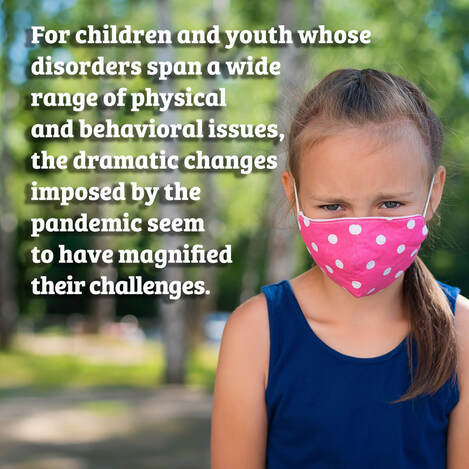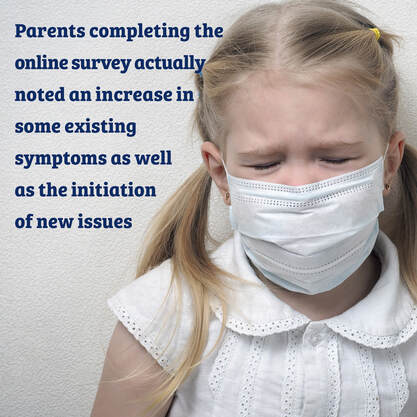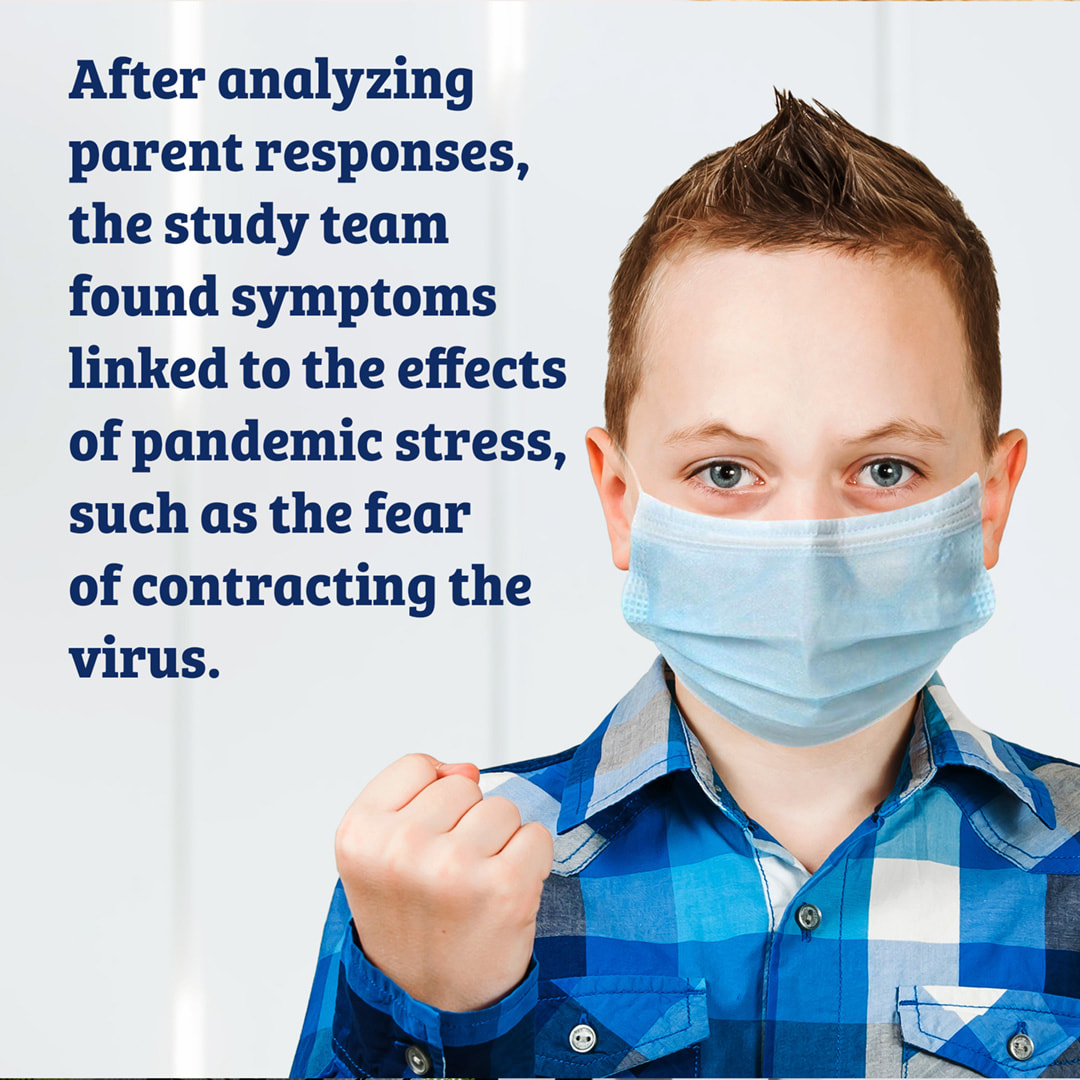But, the pandemic brought with it many changes to daily life that shifted even more the world of these young patients and their families. Scientists seeking to explore the impact of lockdown on the clinical course of children with PANS or PANDAS expected that with reduced exposure to certain environmental factors, along with positive parenting strategies, that symptoms might have abated or not worsened. However, during the study’s identified period from April 14 through May 3, 2020, survey results showed quite different results than anticipated…parents completing the online survey actually noted an increase in some existing symptoms as well as the initiation of new issues.1  This study included 108 children, adolescents, and young adults identified through a multicenter PANS/PANDAS research program located in several pediatric departments at universities in Italy. Parents completed a questionnaire consisting of 22 questions divided into four sections comprising: sociodemographic details; observed symptoms; parenting strategies; and multiple choice questions regarding tools or actions that promote a decrease or increase in symptoms. Investigators had hypothesized that “few studies have data on the efficacy of psychotherapeutic treatments because they focus primarily on viral etiology, considering it the sole source of symptom triggering in the flare-ups. Given this premise, it is essential to analyze all factors contributing to symptom exacerbation, including environmental factors and triggering events of social, familial, and educational nature.” However, after analyzing parent responses, the study team found:
 In summary, researchers noted that “this preliminary study highlights the importance of studying and investigating the causes of increased symptoms in children with PANDAS/PANS” and that “the importance of managing emotions and problematic behaviors is also highlighted. It has also been found that parents' perception of self-efficacy concerning their educational and caring skills can act against the increase in symptoms.” Additionally, the information obtained from the study was in line with recommendations for current treatment approaches. Many of us can attest to the difficulties of life over the last year and a half even without the added struggles of having a chronic illness. For children and youth whose disorders span a wide range of physical and behavioral issues, the dramatic changes imposed by the pandemic seemed to have magnified their challenges. From isolation and school closures to new home routines, an inability to see family or familiar faces, combined with what may be parental concerns about finances and the virus itself, so much has occurred that could impact any child – and especially children with chronic neurological diagnoses. Masks can, as we’ve previously discussed, promote a sense of isolation and fear and some studies have shown the immunologic and psychologic hazards to children who are forced to wear masks for prolonged periods of time. At the outset of the pandemic, WHO experts advised that use of facemasks is not recommended as potential benefits are rather limited and there is a potential risk of self-contamination if used improperly. Another research study shows that a moist mask is a breeding ground for (antibiotic resistant) bacteria and fungi, which can undermine mucosal viral immunity. Several studies show that long-term exposure to socio-psychological stress leaves neuro-epigenetic scars that are difficult to cure in young people and often escalate into mental behavioural problems and a weakened immune system A recent study by the CDC concludes that in young adults (18-24 years), the level of anxiety and depression has increased by 63% (!) since the corona crisis. A quarter of them think about suicide. As a result, the use of antidepressants has increased by 25%. It's critical to engage your children in conversations when not wearing facial coverings, to help activate neural regions that allow us to identify and store patterns, support facial recognition processes, and develop social cues comprehension. It’s so important for parents and caregivers to be aware of any changes in a child’s behavior, or if they express new symptoms, and report these to your pediatrician or specialist. Ask for support with stress management techniques or ways to help your child cope, particularly if there are significant life events that occur or affect routines. As the situation in our lives continues to evolve and more changes may occur, please remember too to be kind to yourself, whether that means taking some time to go for a walk, to read a book or just relax with a few minutes of meditation. Self-care isn’t selfish, it’s really one of the best things you can do for your child, your family, and for YOU. As always, if you have questions or need to schedule a visit, please don’t hesitate to reach out – we are here to help! “There can be no keener revelation of a society’s soul,” Nelson Mandela famously said, “than the way in which it treats its children.” In hope and healing, Dr. Suzanne Gazda For more reading… Visit our Helpful Links section and be sure to check out some of our related articles in the blog library including: https://www.suzannegazdamd.com/blog/pans-and-pandas-is-making-the-newsbut-what-do-we-really-know https://www.suzannegazdamd.com/blog/our-childrens-mental-health-in-the-wake-of-a-pandemic https://www.suzannegazdamd.com/blog/our-childrens-pandemic-of-neuro-immune-disorders References: 1 Guido CA, Loffredo L, Zicari AM, Pavone P, Savasta S, Gagliano A, Brindisi G, Galardini G, Bertolini A and Spalice A (2021) The Impact of the COVID-19 Epidemic During the Lockdown on Children With the Pediatric Acute-Onset Neuropsychiatric Syndrome (PANDAS/PANS): The Importance of Environmental Factors on Clinical Conditions. Front. Neurol. 12:702356. doi: 10.3389/fneur.2021.702356
0 Comments
Your comment will be posted after it is approved.
Leave a Reply. |
AuthorDr. Suzanne Gazda, Integrative Neurology Archives
February 2024
Categories |

 RSS Feed
RSS Feed